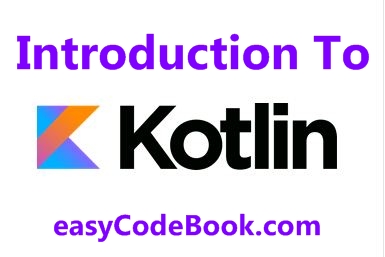Introduction To Kotlin Programming – Kotlin is a modern, statically-typed programming language that was developed by JetBrains, a software development company. Kotlin has been officially endorsed by Google for Android app development. It is designed to be fully interoperable with Java, making it an excellent choice for Android app development and a wide range of other application types. Kotlin offers several features and advantages that make it a popular and versatile programming language.

Kotlin is a modern, statically-typed programming language that was developed by JetBrains, the company behind popular integrated development environments (IDEs) like IntelliJ IDEA. It was officially released in 2011 and has gained significant popularity in the world of software development, particularly for Android app development. Here’s a brief introduction to Kotlin:
- Concise and Readable: Kotlin is known for its concise and expressive syntax, which allows developers to write code that is easy to read and maintain. It reduces boilerplate code, making it more efficient to write and understand.
- Statically Typed: Kotlin is statically typed, which means that type checking is performed at compile time. This helps catch errors early in the development process and improves the overall stability of your code.
- Interoperability: Kotlin is fully interoperable with Java, which means you can seamlessly use Kotlin code within existing Java projects and vice versa. This makes it a great choice for organizations and developers who want to adopt Kotlin gradually.
- Null Safety: Kotlin addresses the notorious problem of null references by introducing nullable and non-nullable types. This helps prevent null pointer exceptions, a common source of runtime errors.
- Functional Programming: Kotlin includes many features from functional programming, such as first-class functions, lambdas, and higher-order functions. This allows for more expressive and efficient code.
- Extension Functions: Kotlin allows you to add new functions to existing classes without modifying their source code. This is known as extension functions and is a powerful feature for enhancing the functionality of libraries and classes.
- Coroutines: Kotlin provides built-in support for asynchronous programming through coroutines. This simplifies working with asynchronous tasks, such as network requests and background processing.
- Smart Casts: Kotlin has smart cast capabilities that automatically cast types when certain conditions are met, reducing the need for explicit type casting.
- Immutable Data: Kotlin encourages the use of immutable data structures, which can lead to more predictable and safer code.
- IDE Support: Kotlin has strong support in popular integrated development environments like IntelliJ IDEA, Android Studio, and more, making it a practical choice for a wide range of software development projects.
![]()